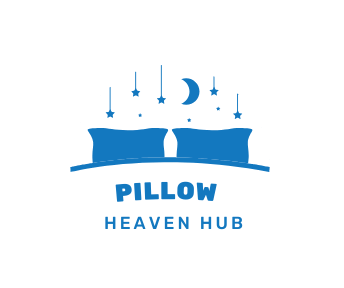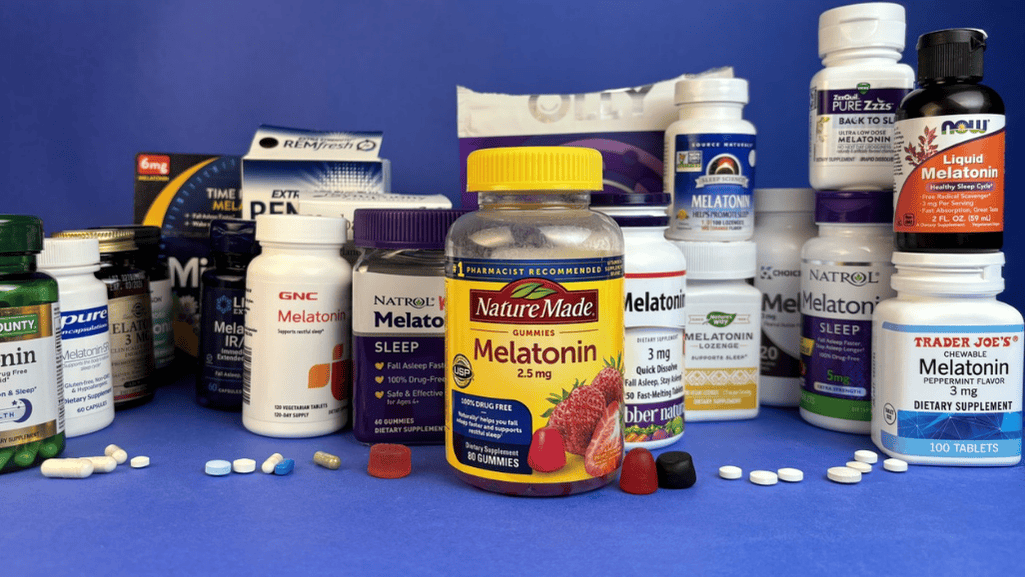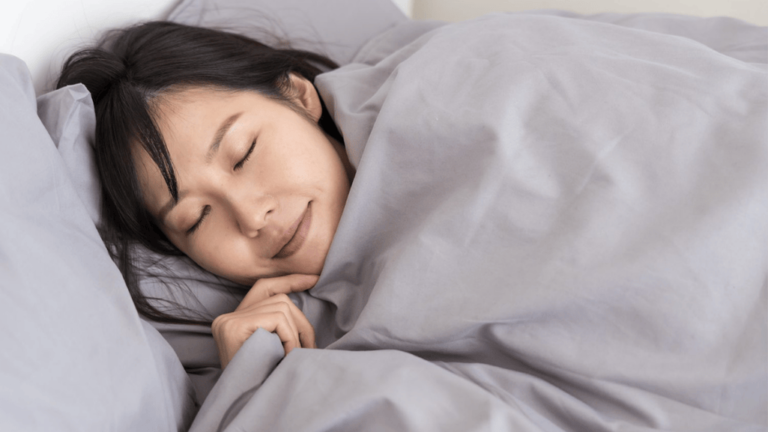Getting a good night’s sleep is crucial for overall health and well-being, yet 35% of adults in America fail to get the recommended amount of sleep per night. With insomnia being the most common sleep disorder, it’s no surprise that more than 8% of adults report using a sleep aid multiple times in the previous week. Two popular options for those seeking relief from sleepless nights are NyQuil and melatonin, both of which are over-the-counter medications that can help with insomnia treatment. However, they work differently and have distinct pros and cons, including potential side effects.
When choosing between NyQuil and melatonin, it’s essential to understand their differences and how they can impact your sleep. A recent New York Times article delves into the nuances of these sleep aids, highlighting the importance of tailoring your choice based on your specific needs and sleep issues. By comparing the effectiveness, duration of effects, and potential for dependency or tolerance of NyQuil vs melatonin, you can make an informed decision to improve your sleep quality and overall health.
Key Takeaways
- NyQuil and melatonin are popular over-the-counter sleep aids with different mechanisms of action and potential side effects.
- Understanding the differences between NyQuil and melatonin is crucial for selecting the most appropriate sleep aid for your needs.
- Dosage, timing, and potential interactions should be considered when using either NyQuil or melatonin for improved sleep.
- Alternative sleep aids and techniques, such as lifestyle changes and natural remedies, may also be beneficial for those struggling with sleep issues.
- Consulting a doctor is recommended when experiencing persistent or severe sleep problems to determine the best course of treatment.
Understanding the Differences Between NyQuil and Melatonin
When it comes to getting a good night’s sleep, many people turn to over-the-counter sleep aids like NyQuil or melatonin supplements. While both can be effective in promoting sleep, they work in different ways and have distinct characteristics. Understanding these differences is crucial for making an informed decision about which sleep aid may be best suited for your needs.
What is NyQuil?
NyQuil is an over-the-counter medication that contains a combination of active ingredients, including antihistamines such as diphenhydramine or doxylamine. These antihistamines have sedative properties that can cause drowsiness and help people fall asleep more easily. NyQuil is typically used to alleviate symptoms of the common cold, flu, or allergies while also promoting sleep.
According to a study published in The Journal of Clinical Pharmacology, diphenhydramine, which is found in products like Zzzquil, has been shown to be an effective sleep aid for mild to moderate insomnia, often with stronger effects compared to melatonin. However, it’s important to note that NyQuil also contains other ingredients like acetaminophen, a widely-used over-the-counter painkiller that can potentially cause liver injury if overused or combined with alcohol.
How Melatonin Works in the Body
Melatonin, on the other hand, is a natural hormone produced by the pineal gland in the brain. It plays a crucial role in regulating the body’s sleep-wake cycle, also known as the circadian rhythm. As evening approaches and darkness falls, the body’s melatonin levels naturally increase, signaling that it’s time to sleep.
Melatonin supplements are designed to mimic the effects of the body’s natural melatonin production. By taking these supplements, you can help regulate your circadian rhythm and promote better sleep. A meta-analysis from PLOS One found that melatonin could help people fall asleep faster, stay asleep longer, and experience better quality sleep when compared to a placebo in 19 randomized, controlled trials.
| Characteristic | NyQuil | Melatonin |
|---|---|---|
| Type | Over-the-counter medication | Natural hormone supplement |
| Active Ingredients | Antihistamines (diphenhydramine, doxylamine), acetaminophen, dextromethorphan | Melatonin |
| Mechanism of Action | Antihistamines cause drowsiness and help with sleep | Regulates the body’s sleep-wake cycle (circadian rhythm) |
| Potential Side Effects | Drowsiness, dizziness, dry mouth, liver damage (if overused) | Headache, nausea, dizziness, daytime drowsiness (if taken in high doses) |
While both NyQuil and melatonin can be effective in promoting sleep, it’s essential to consider their differences and potential side effects before choosing a sleep aid. If you have concerns about your sleep quality or are experiencing chronic insomnia, it’s always best to consult with a healthcare professional to determine the most appropriate treatment option for your individual needs.
The Pros and Cons of Using NyQuil for Sleep
When it comes to getting a good night’s rest, many people turn to over-the-counter medications like NyQuil for relief. With the global sleep aids market valued at $67 billion in 2022 and projected to grow to $130 billion by 2032, it’s clear that a significant number of individuals are seeking solutions for their sleep troubles. However, before reaching for that bottle of NyQuil, it’s essential to understand both the benefits and potential drawbacks of using this medication as a sleep aid.
Benefits of NyQuil as a Sleep Aid
NyQuil can be an effective short-term solution for those struggling with insomnia due to its sedative effects. The medication contains doxylamine, an antihistamine that causes drowsiness by inhibiting histamine receptors in the brain. This ingredient helps people fall asleep faster and stay asleep longer, providing much-needed relief for those suffering from sleep disorders.
In fact, doxylamine, the main ingredient in NyQuil responsible for inducing sleepiness, can be taken alone for sleep and is even prescribed by doctors for this purpose. The effects of NyQuil typically last about six hours, and the medication can be taken every six hours as needed.
Potential Side Effects and Risks of NyQuil
While NyQuil can be beneficial for short-term sleep issues, it’s crucial to be aware of the potential side effects and risks associated with its use. Some common side effects include:
- Daytime drowsiness and grogginess
- Dry mouth
- Constipation
- Urinary retention
Additionally, NyQuil can interact with other medications, so it’s essential to consult with a healthcare professional before taking it if you are currently taking any other drugs. It’s also important to note that some NyQuil products contain alcohol, which can be addictive and should not be used for sleep purposes.
Relying on NyQuil for sleep is not advised due to the presence of ingredients like alcohol that should not be used for sleep.
Another concern with using NyQuil as a long-term sleep solution is the risk of developing tolerance or dependency. With extended use, NyQuil may lead to tolerance, meaning that it may not produce the same sleep-inducing effect over time. Taking larger doses or more frequent doses of NyQuil to achieve the same effect can indicate tolerance and physical dependence on the drug. Withdrawal symptoms can occur if one abruptly stops taking NyQuil, indicating a serious condition that may require medical assistance.
It’s important to note that while NyQuil is not an addictive drug, and none of its components are controlled substances, it should still be used with caution and under the guidance of a healthcare professional.
Melatonin: A Natural Alternative for Better Sleep
For those seeking a more natural approach to improving sleep quality, melatonin supplements have emerged as a promising alternative to over-the-counter medications like NyQuil. Melatonin, a hormone naturally produced by the body, plays a crucial role in regulating sleep-wake cycles. By supplementing with melatonin, individuals can effectively address sleep disturbances caused by factors such as jet lag, shift work, or delayed sleep phase syndrome.
Unlike antihistamine-based sleep aids, which can lead to unwanted side effects like drowsiness, dizziness, and dry mouth, melatonin is generally well-tolerated and has a lower risk of adverse reactions. A 2016 study indicated that melatonin supplementation can aid in falling asleep faster and improving overall sleep quality, making it particularly beneficial for shift workers whose natural sleep patterns are often disrupted.
In addition to its effectiveness in promoting better sleep, melatonin has shown promise in alleviating symptoms associated with jet lag. Travelers crossing multiple time zones can benefit from taking melatonin supplements to help reset their internal clock and adapt to new sleep schedules more quickly. By naturally signaling to the body that it’s time to sleep, melatonin can reduce the duration and severity of jet lag symptoms.
“Melatonin is a safe and effective option for individuals looking to improve their sleep quality without relying on traditional sleep medications. Its ability to regulate sleep-wake cycles and alleviate sleep disturbances makes it a valuable tool for those struggling with insomnia, jet lag, or shift work-related sleep issues.” – Dr. Sarah Johnson, Sleep Specialist
While melatonin supplements are generally considered safe, it’s essential to consult with a healthcare professional before starting any new supplement regimen. They can help determine the appropriate dosage and timing based on individual needs and medical history. Additionally, adopting healthy sleep habits, such as maintaining a consistent sleep schedule and creating a relaxing bedtime routine, can further enhance the effectiveness of melatonin supplements.
When selecting a melatonin supplement, it’s crucial to choose a reputable brand and opt for high-quality, pure ingredients. Look for supplements that have been third-party tested and certified to ensure potency and purity. With the right approach and guidance, melatonin supplements can be a game-changer for those seeking a natural way to achieve better sleep and improved overall well-being. Remember, investing in quality sleep is an investment in your health, productivity, and happiness. Don’t let sleep disturbances hold you back any longer – explore the potential of melatonin supplements and take the first step towards a more restful, rejuvenating night’s sleep. Pairing melatonin with the right pillow can further enhance your sleep quality and alleviate neck pain or stiffness, allowing you to wake up feeling refreshed and ready to tackle the day ahead.
Dosage and Timing: How to Take NyQuil and Melatonin Effectively
When it comes to getting a good night’s sleep, finding the right dosage and timing for your sleep aids is crucial. Both NyQuil and melatonin can be effective in promoting sleep onset and maintenance, but it’s essential to understand the proper guidelines for each.
Over-the-counter remedies like NyQuil are often used to treat symptoms of the common cold and flu, with approximately 50% of the population using such medications annually. On the other hand, melatonin supplements are widely used to treat insomnia and other sleep disorders, with a reported usage rate of around 3%-5% of the adult population.
Recommended Dosage for NyQuil
The recommended dosage for NyQuil is typically 30 mL (two tablespoons) for adults and children 12 years and older. It’s important to follow the dosage guidelines on the product label and not exceed the recommended amount. Taking more than the suggested dose may lead to adverse effects and can be harmful to your health.
Optimal Melatonin Dosage for Sleep
When it comes to melatonin, a dose between 0.5 mg and 5 mg is usually sufficient for most people. However, older adults may require a slightly higher dose, between 1 mg and 6 mg. It’s crucial to start with the lowest effective dose and gradually increase if needed. Research indicates that taking melatonin before bed decreases sleep latency by almost 3 minutes, increasing total sleep time by about 30 minutes compared to a placebo.
An analysis of 23 studies found that melatonin significantly reduced sleep disturbances, sleep latency, while increasing sleep duration and quality in people with disease-related sleep disorders.
When to Take Each Sleep Aid for Best Results
Timing is key when it comes to taking NyQuil and melatonin for optimal sleep. NyQuil should be taken just before bedtime, about 30 minutes prior to sleep. This allows the medication to start working as you settle into bed, promoting a more restful night’s sleep.
Melatonin, on the other hand, is most effective when taken about two hours before the desired sleep time. This gives your body enough time to absorb the supplement and naturally increase melatonin levels, signaling to your brain that it’s time to sleep. By taking melatonin at the right time, you can improve your chances of falling asleep faster and experiencing better sleep quality throughout the night.
It’s worth noting that while NyQuil and melatonin can be helpful for occasional sleep issues, they should not be relied upon as long-term solutions. If you find yourself struggling with chronic insomnia or other sleep disorders, it’s essential to consult with a healthcare professional to determine the underlying cause and develop an appropriate treatment plan. By combining the right dosage and timing of sleep aids with healthy sleep habits, such as maintaining a consistent sleep schedule and creating a relaxing bedtime routine, you can take control of your sleep and wake up feeling refreshed and rejuvenated. For more information on choosing the perfect pillow size to enhance your sleep experience, be sure to check out our comprehensive guide.
Interactions and Precautions: What to Know Before Taking NyQuil or Melatonin
Before considering NyQuil or melatonin as sleep aids, it’s essential to understand potential drug interactions and precautions. NyQuil, containing ingredients like Acetaminophen, Dextromethorphan, Doxylamine succinate, and Phenylephrine HCl, can lead to dangerous respiratory depression when combined with other sedatives, such as alcohol, opiates, or benzodiazepines. Melatonin, a natural hormone, may interact with certain medications, including blood thinners and immunosuppressants, making it crucial to consult a healthcare provider before use.
Individuals with specific health conditions should exercise caution when taking these sleep aids. For example, those with diabetes, high blood pressure, or seizure disorders should consult their doctor before using NyQuil or melatonin. Pregnancy and breastfeeding also require special consideration, as the safety and effects of these substances on the developing fetus or infant may not be fully understood. Seeking medical advice is essential to ensure the well-being of both the mother and child.
Age is another factor to consider when choosing a sleep aid. Benadryl, an antihistamine found in some NyQuil formulations, may lead to cognitive impairment, falls, and bone fractures in older adults, making it an unsuitable choice for this population. On the other hand, melatonin has been found effective for insomnia in various age groups, with recommended daily dosages ranging from 0.5–3 mg for children, 1–5 mg for adults, and 1–6 mg for older adults. However, it’s crucial to consult a healthcare provider, registered dietitian nutritionist (RD or RDN), or pharmacist when selecting a melatonin supplement to ensure the product is third-party tested and appropriate for individual needs.
Long-term use of NyQuil can result in liver damage and various health consequences, and it should not be used continuously for more than two weeks. Exceeding the recommended daily dosage of NyQuil, particularly with Acetaminophen, can cause severe liver damage. In fact, taking 4 grams of Acetaminophen within 24 hours can lead to liver damage. Additionally, NyQuil contains Doxylamine, an ingredient associated with sedative effects and potential psychological addiction, which may lead to misuse as a mild sleeping aid or in the creation of dangerous mixtures like “Lean” for euphoric effects.
“Sleep disturbances and chronic diseases in older adults were reported in the 2003 National Sleep Foundation Sleep in America Survey, with a prevalence of 56.5%.” – Foley et al., 2004
To minimize the risk of drug interactions and adverse effects, it’s essential to:
- Communicate openly with healthcare providers about all medications, supplements, and underlying health conditions
- Follow dosage instructions carefully and avoid mixing sleep aids with other sedatives or alcohol
- Be aware of potential side effects and seek medical attention if any concerning symptoms arise
- Consider alternative strategies, such as cognitive behavioral therapy, relaxation training, and maintaining proper sleep hygiene, before resorting to OTC or prescription sleep aids
By understanding the potential interactions and precautions associated with NyQuil and melatonin, individuals can make informed decisions about their sleep health. Consulting with healthcare professionals and exploring alternative approaches to improving sleep quality can lead to safer, more effective solutions for achieving restorative rest.
Choosing the Right Sleep Aid for Your Needs
When it comes to selecting a sleep aid, there are several factors to consider to ensure you make the best choice for your unique situation. By taking into account your specific sleep patterns, underlying health issues, and the cause of your sleep disturbances, you can determine whether NyQuil, melatonin, or another option is most suitable for you.
According to a meta-analysis from PLOS One that examined 19 randomized, controlled trials, melatonin has been found to help people fall asleep faster, stay asleep longer, and improve overall sleep quality compared to a placebo. This makes it an effective choice for those dealing with jet lag or shift work-related sleep disturbances, as indicated by studies from journals such as PLOS One and Zeitschrift für Gerontologie und Geriatrie. When using melatonin, it’s essential to consider the appropriate dosage, as controlled trials from The Journal of Biological and Medical Rhythm Research suggest that lower doses, such as 0.5 mg, can be nearly as effective for treating jet lag as higher doses like 5 mg.
Factors to Consider When Selecting a Sleep Aid
On the other hand, NyQuil, which contains the antihistamine diphenhydramine, may be more suitable for short-term sleep issues caused by a cold or flu. Diphenhydramine has been noted in studies like The Journal of Clinical Pharmacology to be more effective for insomnia than melatonin and to cause marked drowsiness. However, it’s important to be aware of potential side effects, such as dizziness, dry mouth, impaired coordination, stomach pain, and blurred vision, as documented in a book from StatPearls.
When choosing a sleep aid, it’s also crucial to consider your overall health and any medications you are currently taking. Some sleep aids may interact with certain medications or exacerbate underlying health conditions. For example, acetaminophen, present in Tylenol PM, has shown rare cases of causing liver injury when abused or used with alcohol, according to a review from the Cochrane Database of Systematic Reviews. This makes it important to use this drug cautiously, especially for individuals with liver conditions.
When to Consult a Doctor for Sleep Issues
If you experience chronic insomnia or suspect an underlying sleep disorder, it’s essential to consult a healthcare professional for proper diagnosis and treatment. Studies indicate that 30% to 40% of adults have trouble falling or staying asleep, while 85% of individuals face general sleep disturbances. A doctor can help you identify the cause of your sleep issues and recommend the most appropriate course of action, which may include lifestyle changes, therapy, or medication.
In some cases, over-the-counter sleep aids like melatonin or ZzzQuil may not be sufficient to address chronic insomnia or sleep disorders. In these situations, a doctor may prescribe stronger medications or recommend alternative therapies to help improve sleep quality and address underlying health concerns.
NyQuil vs Melatonin: A Head-to-Head Comparison
When it comes to selecting a sleep aid, it’s essential to understand the key differences between popular options like NyQuil and melatonin. By comparing their effectiveness, duration of effects, and potential for dependency or tolerance, you can make an informed decision tailored to your unique sleep needs.
Effectiveness in Promoting Sleep
Both NyQuil and melatonin have been shown to reduce sleep latency, or the time it takes to fall asleep, and improve overall sleep quality. A meta-analysis from PLOS One examining 19 randomized, controlled trials found that melatonin helped people fall asleep faster, stay asleep longer, and experience better sleep quality compared to a placebo. Similarly, NyQuil’s sedative properties can effectively promote sleep, though its effects may be more pronounced than melatonin’s.
Duration of Effects
The duration of effects varies between NyQuil and melatonin. NyQuil’s impact on sleep tends to last longer, as its active ingredients, such as doxylamine succinate, have a half-life of around 10 hours. In contrast, melatonin supplements typically have a shorter duration of action, with effects lasting between 4 to 8 hours, depending on the individual and the dosage taken. This difference in duration may influence which sleep aid is more suitable for your specific sleep concerns and lifestyle.
Potential for Dependency or Tolerance
When comparing the potential for dependency or tolerance, NyQuil carries a higher risk than melatonin. The antihistamine component in NyQuil can lead to habituation, meaning that over time, higher doses may be needed to achieve the same sleep-inducing effects. Abruptly discontinuing NyQuil after prolonged use may also result in rebound insomnia, where sleep difficulties temporarily worsen.
On the other hand, melatonin is generally considered to have a lower risk of dependency or tolerance. As a natural hormone, melatonin supplements work with the body’s existing sleep-wake cycle, making them less likely to cause habit-forming effects. However, it’s still important to use melatonin responsibly and consult a healthcare professional for guidance on appropriate dosage and duration of use.
| Comparison Factor | NyQuil | Melatonin |
|---|---|---|
| Effectiveness in Reducing Sleep Latency | High | Moderate to High |
| Improvement in Total Sleep Time | Significant | Moderate |
| Duration of Effects | Long (up to 8 hours) | Short to Moderate (4-8 hours) |
| Potential for Dependency | Higher | Lower |
| Risk of Rebound Insomnia | Higher | Lower |
By weighing the effectiveness, duration of effects, and potential for dependency or tolerance between NyQuil and melatonin, you can determine which sleep aid aligns best with your individual needs and preferences. Remember, consulting with a healthcare professional is always recommended to ensure safe and appropriate use of any sleep aid.
Alternative Sleep Aids and Techniques
While NyQuil and melatonin are popular choices for those seeking better sleep, there are several other options available to help you get the rest you need. From over-the-counter medications to natural remedies and lifestyle changes, finding the right solution for your sleep troubles may involve a bit of trial and error.
Other Over-the-Counter Sleep Medications
In addition to NyQuil, there are other over-the-counter sleep aids that can help you drift off to sleep. Antihistamine medications containing diphenhydramine, such as Benadryl, are commonly used as sleep aids due to their sedative side effects. Similarly, products like Unisom and ZzzQuil contain diphenhydramine and can help most people fall asleep. However, it’s important to use these medications cautiously to avoid grogginess and potential rebound insomnia with regular use over several weeks.
Natural Remedies for Better Sleep
For those seeking a more natural approach to improving sleep, herbal supplements and remedies may be worth exploring. Valerian root, for example, is a popular natural sleep aid that has been shown to be particularly beneficial for menopausal or post-menopausal women who have difficulty sleeping. Chamomile, often consumed as a tea, is another herb known for its relaxing properties that may aid in preparing for sleep. While the effectiveness of these natural remedies lacks robust scientific backing, many people find them helpful in promoting relaxation and improving sleep quality.
Lifestyle Changes to Improve Sleep Quality
Perhaps the most effective long-term solution for improving sleep quality is making lasting lifestyle changes and adopting healthy sleep hygiene practices. This can include maintaining a consistent sleep schedule, creating a relaxing bedtime routine, and avoiding screens before bed. Managing stress through relaxation techniques like deep breathing, meditation, or progressive muscle relaxation can also contribute to better sleep. For some individuals, cognitive-behavioral therapy may be helpful in addressing underlying sleep issues and developing healthier sleep habits.
“Sleep is the golden chain that ties health and our bodies together.” – Thomas Dekker
Ultimately, the key to achieving better sleep is finding the combination of strategies that work best for you. Whether it’s incorporating natural remedies like valerian root or chamomile, making lifestyle changes to prioritize sleep, or seeking guidance from a healthcare professional, there are countless ways to improve the quality and quantity of your rest. By exploring the various options available and staying committed to your sleep goals, you can unlock the restorative power of a good night’s sleep.
Conclusion
In the battle of NyQuil vs melatonin, the sleep aid comparison reveals that there is no universal solution for everyone. With about one in three American adults struggling to get enough sleep and 85% experiencing general sleep disturbances, finding the right approach is crucial. While melatonin is a common OTC sleep aid recommended for those with disrupted sleep schedules, NyQuil contains diphenhydramine, which can also induce sleepiness. However, it’s important to note that OTC sleep aids are generally not significantly effective for most people, with melatonin being an exception as the only recommended aid for adults with sleep difficulties.
When considering alternative sleep aids, valerian, an herb with potential sleep-enhancing properties due to its influence on the neurotransmitter GABA, has been traditionally used. L-theanine, magnesium, chamomile, and saffron are also potential options, with recommended dosages varying for each. However, it’s essential to approach sleep issues with a personalized approach that may include a combination of sleep aids, lifestyle changes, and professional guidance from a healthcare provider.
Despite the availability of OTC sleep aids, it’s crucial to consult a healthcare professional before using them, as they may still have adverse side effects like headaches, dizziness, or nausea. Not all OTC sleep aids are FDA-approved, contributing to variability in product quality and making it difficult to ensure their safety and efficacy. By working closely with a healthcare provider and considering individual factors, such as the cause and severity of sleep problems, overall health, and personal preferences, you can develop a tailored plan to improve your sleep quality and overall well-being.












